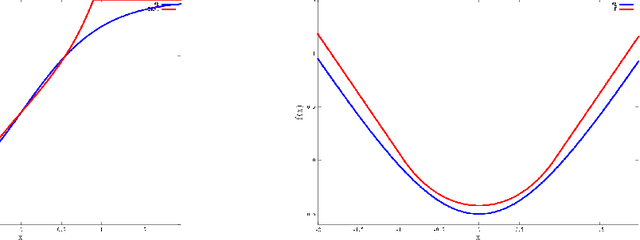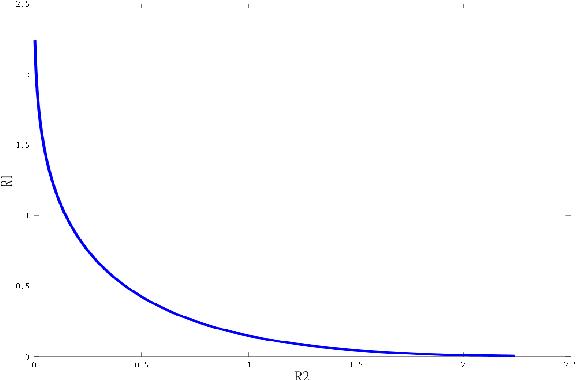A Differential Equations Approach to Optimizing Regret Trade-offs
Paper and Code
May 07, 2013

We consider the classical question of predicting binary sequences and study the {\em optimal} algorithms for obtaining the best possible regret and payoff functions for this problem. The question turns out to be also equivalent to the problem of optimal trade-offs between the regrets of two experts in an "experts problem", studied before by \cite{kearns-regret}. While, say, a regret of $\Theta(\sqrt{T})$ is known, we argue that it important to ask what is the provably optimal algorithm for this problem --- both because it leads to natural algorithms, as well as because regret is in fact often comparable in magnitude to the final payoffs and hence is a non-negligible term. In the basic setting, the result essentially follows from a classical result of Cover from '65. Here instead, we focus on another standard setting, of time-discounted payoffs, where the final "stopping time" is not specified. We exhibit an explicit characterization of the optimal regret for this setting. To obtain our main result, we show that the optimal payoff functions have to satisfy the Hermite differential equation, and hence are given by the solutions to this equation. It turns out that characterization of the payoff function is qualitatively different from the classical (non-discounted) setting, and, namely, there's essentially a unique optimal solution.
 Add to Chrome
Add to Chrome Add to Firefox
Add to Firefox Add to Edge
Add to Edge